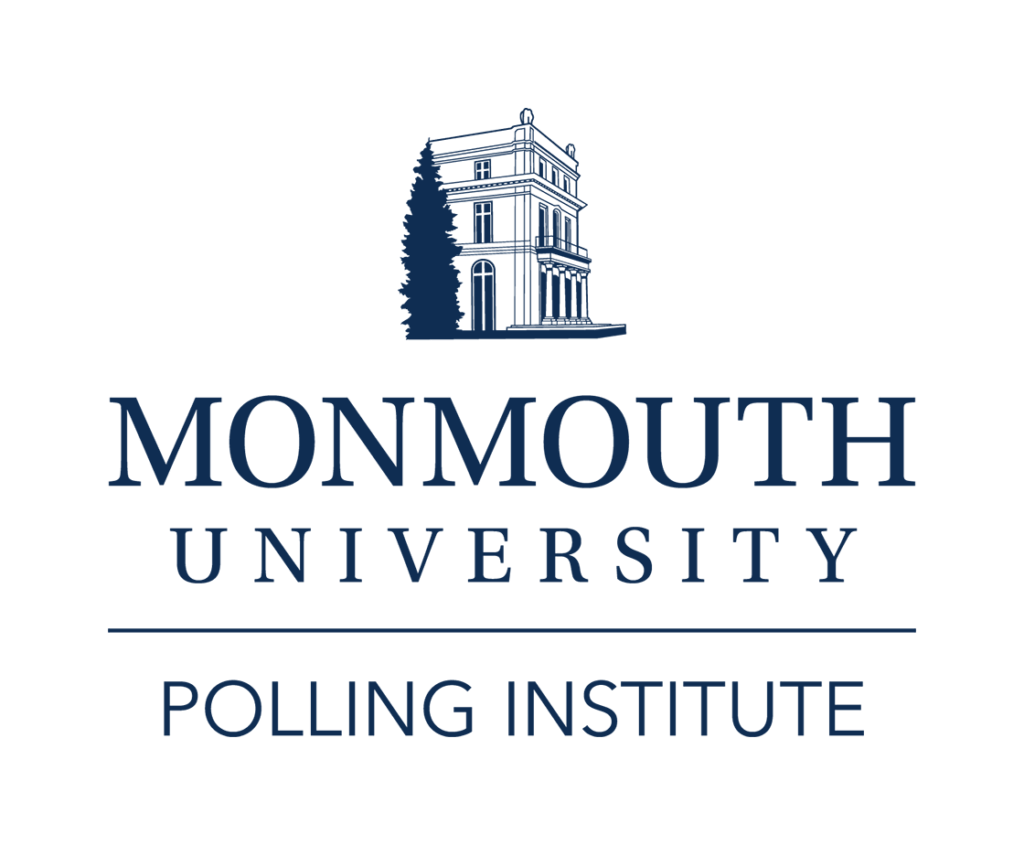The Monmouth University Polling Institute and the New Jersey Health Care Quality Institute today released their second “Health Matters Poll,” a periodic survey of Garden State attitudes regarding healthcare related issues. The current survey, which examines factors in health insurance decision-making, finds that the health care choice is a bigger consideration than cost for most New Jerseyans. Garden State residents are divided on whether they would give up some of their wages to get better health coverage or whether they would give up health benefits in order to increase their paychecks.
Most insured New Jerseyans (56%) say that the range of available doctors and services is more important to them in choosing a health care plan than the plan’s premium and co-pay costs (33%). State residents covered by government plans such as Medicare or Medicaid (63%) are the most likely to say that the choice of doctors and services is more important. Among those covered by an employer who provides a choice of plans, 53% say that the availability of doctors and services is more important than costs. Among those who purchase coverage on their own, 46% say that choice is more important compared to 38% who say that cost is more important in a health care plan.
“It is not surprising that New Jersey health care consumers care more about access and quality issues than they do cost, although cost is obviously a consideration” said David L. Knowlton, President and CEO of the New Jersey Health Care Quality Institute. “There are few things more important to individuals than their own health and they want to be able to select physicians and hospitals they know and trust.”
The Health Matters Poll also asked New Jerseyans which is the more important reason to carry health insurance: to pay for normal expenses like check-ups and prescriptions or to cover medical bills for severe illnesses and accidents. Unsurprisingly, most (70%) say that both reasons are equally important. However, when pushed to pick the more crucial reason, 68% say it is to cover illnesses and accidents compared to 28% who say that having coverage for normal preventive expenses is more important. Among those who purchase insurance in the marketplace on their own, 81% say that the main reason to have coverage is for illnesses and accidents compared to just 12% who say that having coverage for preventive expenses is more important. Among parents of children under age 18, 38% say that having coverage for everyday medical expenses is more important. This is greater than the 23% of non-parents who feel the same. Still, majorities of parents (58%) and non-parents (73%) alike say it is more important to have health insurance coverage for major medical bills than for preventive care.
Half (50%) of New Jerseyans get their insurance coverage through an employer, and nearly two-thirds (64%) of this group report that their employer provides a choice of different plans. About 1-in-4 (24%) New Jersey adults get insurance coverage through a government plan, 6% purchase insurance coverage on their own, and 5% are covered by their parents’ plan or at school. Another 13% report that they do not have coverage.
Among New Jerseyans who do not have government provided health coverage, 48% say that they would prefer to have more comprehensive health benefits at the expense of lower wages while 42% say that they would sacrifice health benefits for higher wages. Among those who currently purchase health coverage on their own, 61% would give up some of their wages to get better health benefits. Among those who currently carry no coverage, 50% would stick with higher wages over health benefits. Among New Jerseyans who earn less than $50,000 a year, 64% say they would give up some wages in order to get better health coverage. This compares to 46% of those earning $50,000 or more who feel the same.
Among New Jersey residents under the age of 65 who get health coverage through an employer, 49% say they would accept lower wages for better health benefits and 44% say they would accept fewer health benefits to earn higher wages. Garden State views differ from national opinion on this. A Kaiser Health Tracking Survey conducted in June 2013 found that 53% of Americans under age 65 with employer coverage wanted higher wages at the expense of better health benefits compared to 39% who said they would prefer to give up some wages in order to get more comprehensive health coverage.
“The fact that working New Jerseyans are more willing than other Americans to give up some pay in order to get better health coverage is an indication of the burden posed by health care in this high-cost state,” said Patrick Murray, director of the Monmouth University Polling Institute.
The survey asked about six different factors that go into choosing a health insurance plan, and found, unsurprisingly that all six are considered important to at least 3-in-4 New Jerseyans. Focusing on those who say these factors are “extremely” important, the poll found that just under half (44%) say that being able to see the doctors they want without paying more is extremely important to them in a health insurance plan and 42% say that having a plan that covers a wide range of services is extremely important. These findings are similar regardless of the type of insurance plan (government, employer, or self-purchased) or other demographic characteristics such as age or income.
About one-third or more insured New Jerseyans say that the following are extremely important elements in a health plan: having a plan that is easy to understand and requires minimal paperwork (37%), having a low monthly premium (35%), and having low co-pays when they visit a doctor (33%). One-in-four (24%) say that the insurance provider’s reputation is extremely important to them.
Residents who purchase insurance on their own (53%) are more likely than those with coverage provided by an employer (37%) or the government (36%) to say that having an easy to understand plan with minimal paperwork is extremely important to them.
There are no significant group differences on the importance of monthly premiums, but employer-covered residents who have no choice of plans (39%) are somewhat more likely to consider the cost of co-pays to be extremely important when compared to employer-covered residents who have a choice of plans (27%). Also insured residents who earn less than $50,000 a year (42%) are more likely than those who earn $50,000 or more (29%) to consider co-pay costs to be an extremely important factor.
An insurance provider’s reputation is slightly more important to residents who purchase insurance on their own (33%) than it is to those who have employer provided coverage (25%) regardless of whether they have a choice of plans or not.
The Health Matters Poll also found that Garden State opinion of the Affordable Care Act, or Obamacare, has become decidedly negative since September. Currently 40% of New Jerseyans have a favorable view and 50% have an unfavorable view of the health care reforms. This represents a reversal of the 45% favorable to 40% unfavorable opinion recorded three months ago. Still, Garden State views on the ACA remain somewhat more positive than national opinion, which was measured at 33% favorable to 49% unfavorable among all Americans in a Kaiser Health Tracking Survey conducted in November.
NEW JERSEY HEALTH MATTERS SURVEY
DECEMBER 2013 – QUESTIONNAIRE
1. A question on the health reform bill that was signed into law in 2010, known as the Affordable Care Act or Obamacare. Given what you know about the health reform law, do you have a generally favorable or generally unfavorable opinion of it? [PROBE: Is that a very or somewhat (favorable/unfavorable) opinion?]
2. Are you, yourself, now covered by any form of health insurance or health plan or do you not have health insurance at this time? [READ IF NECESSARY: A health plan would include any private insurance plan through your employer or a plan that you purchased yourself, as well as a government program like Medicare or Medicaid?]
[NOTE: Question 3 was asked of those who said they are insured; n=731, m.o.e.= ± 3.6%]
3. We’d like to know what is important to you in a health insurance plan. [READ ITEM] – is this extremely important, very important, somewhat important, or not too important in a health insurance plan? [ITEMS WERE ROTATED]
Being able to see the doctors you want to see without paying more
Having insurance cover a wide range of services
Having a plan that is easy to understand and requires minimal paperwork
Having a low monthly premium
Having low co‐pays when you visit the doctor
The insurance provider’s reputation
[NOTE: Question 4 was asked of those who said they are insured; n=731, m.o.e.= ± 3.6%]
4. Which is more important to you in choosing a health care plan – the cost of premiums and co-pays or the available doctors and services?
5. Which of the following is your MAIN source of health insurance coverage? Is it a plan through your employer, a plan through your spouse’s employer, a plan you purchased yourself, are you covered by Medicare or Medicaid, some other government program, or do you get your health insurance from somewhere else?
[NOTE: Question 6 was asked of those who have a plan through an employer; n=403, m.o.e.= ± 4.9%]
6. As far as you know, did [your/your spouse’s] employer offer you a choice of different health plans, or only one plan?
[NOTE: Question 7 was asked of those who do not have a government provided health care coverage (e.g. Medicare or Medicaid); n=533, m.o.e.= ± 4.3%]
7. If you had to choose between having more comprehensive health insurance benefits and lower wages, or less comprehensive health insurance benefits and higher wages, which would you choose?
8. Which one of the following do you think is the most important reason to have health insurance – to pay for normal health care expenses, like check‐ups and prescriptions, OR to cover medical bills for severe illnesses or accidents, or both equally? [IF “BOTH EQUALLY”, PROBE: And if you had to choose just one main reason to have health insurance – would it be to cover normal expenses or to cover severe illnesses and accidents?]
Click on pdf file link below for full methodology and results by key demographic groups.




